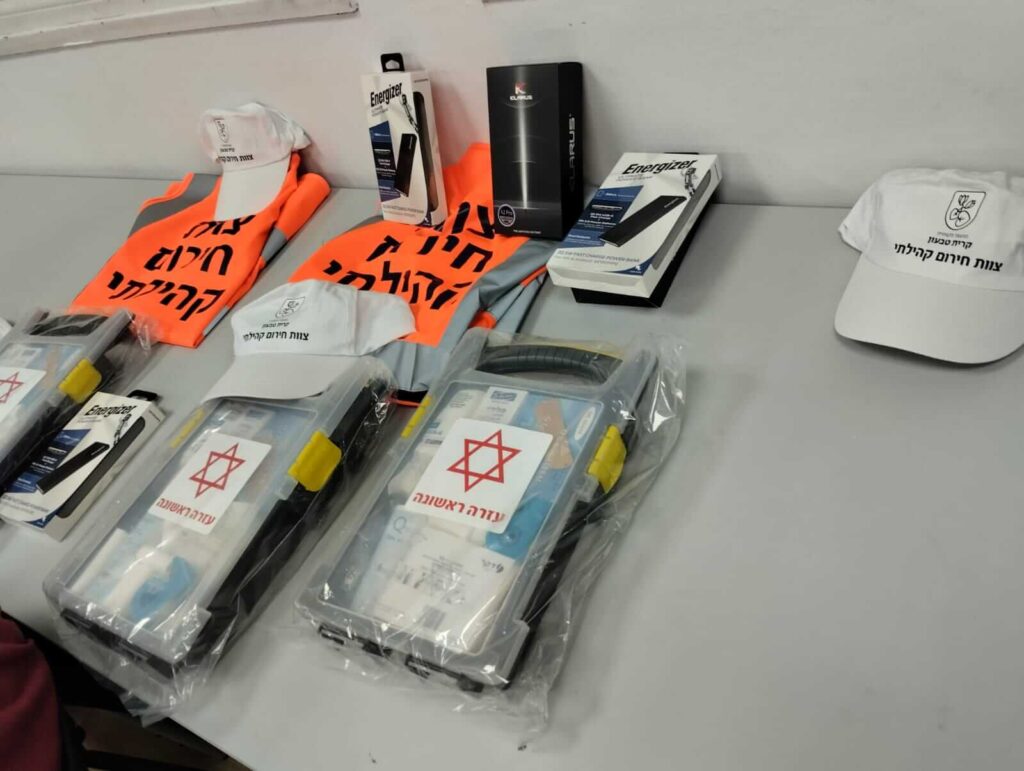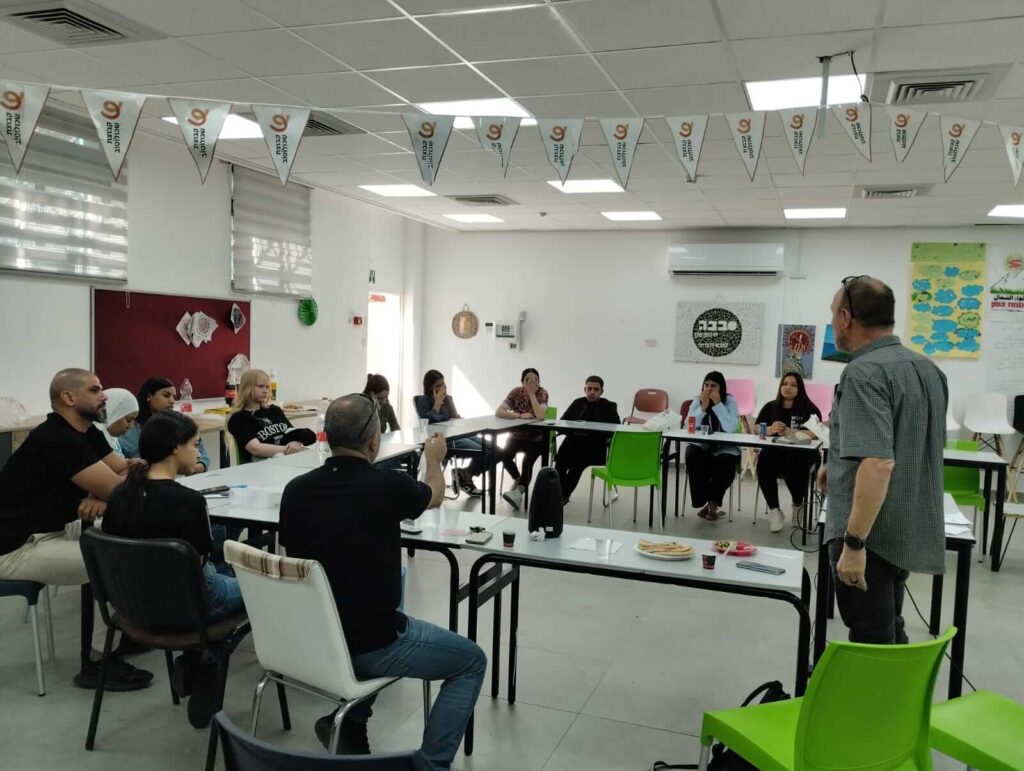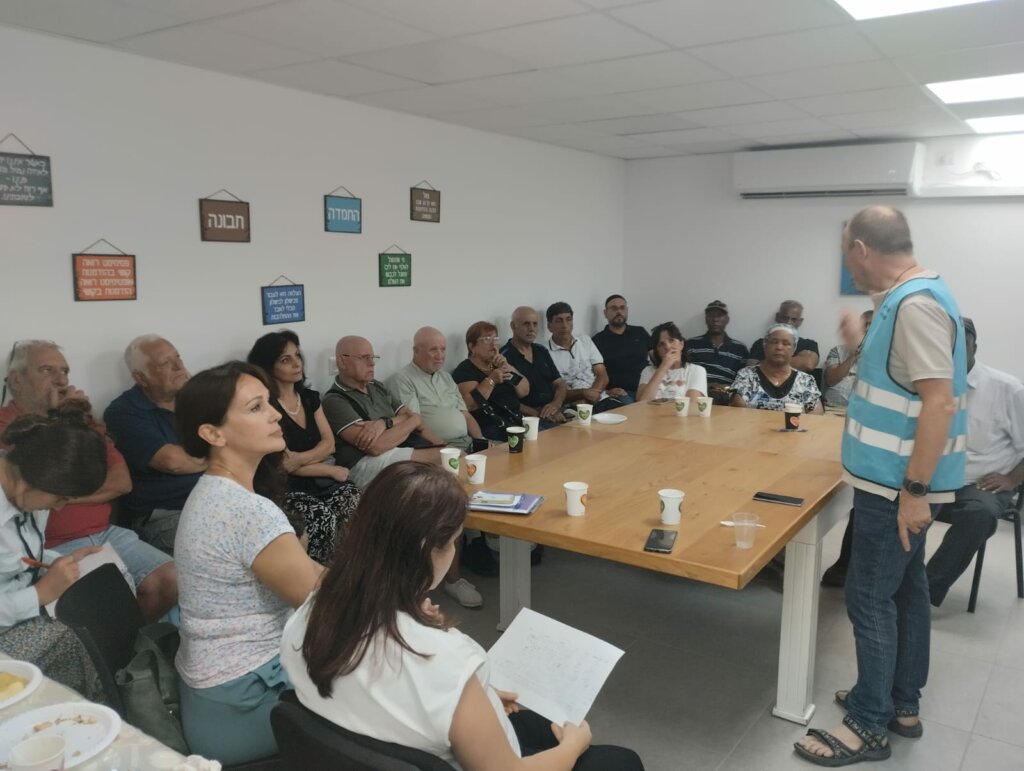
ICEJ Equips, Trains First-Responder Teams in Israel’s North
By: Nativia Samuelsen, ICEJ AID Administrator
In the rolling hills near Israel’s border with Lebanon, local villages are eerily still, their streets almost deserted since residents evacuated their communities long ago. Schools and daycares are silent, collecting dust. Gardens are overgrown, and blackened patches of earth dot the landscape from the many recent fires sparked by rockets fired by Hezbollah. Despite the announcement of a ceasefire between Israel and the Lebanese terror militia a few months ago, few locals see reason to celebrate.
The remains one of suspicion and unease, as many families are hesitant to come back to homes still within rocket range of Hezbollah fighters. These areas bore the brunt of more than a year of cross-border exchanges, forcing over 65,000 residents to hastily leave on October 8, 2023, when Hezbollah began launching daily attacks in support of Hamas down in Gaza.

Community Resilience
In these difficult times, civil preparedness and community resilience are crucial. Amid these challenges, and seeing the need for swift action, the International Christian Embassy Jerusalem (ICEJ) engaged with a special project designed to boost civilian resilience among returning Israelis. This unique project provided essential tools and training that enabled four Community Emergency Teams (CETs) to prepare for an effective crisis response. Our donated equipment includes emergency vests, flashlights, communication devices, protective helmets, and first-aid kits. This support gives these communities the means to manage their safety protocols in the face of ongoing threats.
The Christian Embassy’s relief aid efforts in the North also include placing bomb shelters in vulnerable public places, supplying life-saving communication devices, and equipping emergency first responders with emergency medical kits. These initiatives ensure that residents can feel secure and will receive vital resources, creating an environment where communities are prepared and protected.
“The threat on Israel’s northern border with Lebanon is complex and evolving,” said Nicole Yoder, ICEJ Vice President for AID & Aliyah. “Through the support of Christians around the world, we are working to strengthen Israelis living near the border to ensure they are not just surviving but standing strong.”
“I’m so proud of what we’ve accomplished,” added Megan Turner, a local coordinator of emergency services. “We really did make a difference for many of these northern communities, and we couldn’t have done it without the incredible support of ICEJ.”

Rebuilding Trust
The combination of relentless missile attacks and possible mass terror invasions had fractured the sense of safety for these communities. However, our initiative with the local emergency teams is helping to rebuild that trust. So far, 63 emergency vests, 15 walkie-talkies, dozens of flashlights, and two generators have been distributed, along with 9 megaphones to improve communication during crises. The communities benefitting include Katzrin in the Golan Heights and Rosh Pina and Hatzor HaGalilit in the Hula Valley. In nearby Tuba Zangaria, our emergency equipment and training courses have turned civilian volunteers into self-assured first responders, ready for everything from medical emergencies to rocket alerts.
Before the Christian Embassy’s support came, these northern communities were without adequate emergency resources and felt vulnerable during crises. Now, thanks to the CET initiative, local teams are not only prepared for immediate threats but have developed a sense of confidence that bolsters community morale. The equipment and training have empowered the residents to take action, allowing them to return home and rebuild their lives.
The ICEJ’s support for this civil preparedness project has reached into communities with historically limited emergency infrastructure. For instance, Tuba Zangaria is a predominantly Arab village, and our program has allowed the training of even youth-led response teams.
“Unfortunately, this village was heavily hit during the recent escalation in fighting, and the CETs were activated more than once,” explained Megan. “But because they had already been training together and were known in the community and among the various rescue teams, they were able to deploy and provide vital support such as directing traffic, closing roads, and making house calls in areas where rockets and shrapnel fell.
“These groups are continuing to work together, even beyond the emergency situation, in order to create more community involvement among village residents, thus making the village stronger and more resilient, for both emergency and routine times,” she added.

Saving Lives and Fostering Trust
The influence of the CETs extends beyond the crisis caused by the war with Hezbollah. These northern communities are already using their training and equipment to respond to car accidents and medical incidents, efforts that not only save lives but also foster trust and cooperation among the diverse residents of the area.
“ICEJ is an incredible friend and partner,” insisted Megan. “I can’t wait to give you some more updates on this project.”
The Christian Embassy’s joint efforts with local Israeli authorities have strengthened bonds between neighbors, encouraging a collective resilience that inspires families to return home with newfound trust in their community’s strength. In a region where uncertainty and fear has recently cast a dark shadow over daily life, our emergency response initiatives have brought renewed hope and strength.
Please continue to support the ICEJ’s relief aid efforts as Israel begins to recover from more than a year of war on multiple fronts.
Give to our Israel in Crisis fund at: www.icejusa.org/crisis
Related Articles
ICEJ USA Branch Donates Ambulance to Magen David Adom by Marelinke van der Riet
Haifa Home Team Caring for Holocaust Survivors during War by Marelinke van der Riet
ICEJ War Relief Aid in Israel: One Year Overview by ICEJ Staff
Keep Learning
What Is Antisemitism? Unpacking History’s Longest Hatred By Susan Michael, ICEJ USA President


